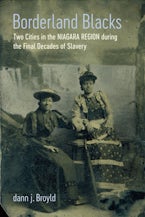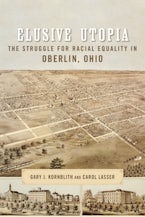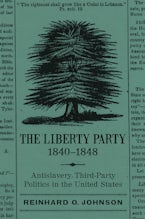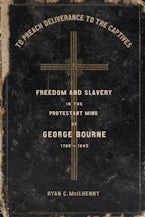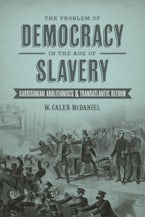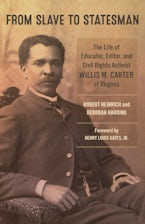Antislavery, Abolition, and the Atlantic World
Series Editors: R. J. M. Blackett & W. Caleb McDaniel
Series Editor Emeritus: James Brewer Stewart
This series from LSU Press is strongly transnational, featuring books bearing on antislavery and abolition in any locale within the Atlantic world. The series is also multidisciplinary, exploring the subjects of antislavery and abolition in as many revealing and imaginative ways as possible. It favors time-honored approaches such as biography, econometrics, and military and political history no less than it showcases newer forms of comparative and transnational study, cultural history, demographic analysis, and studies of race, ethnicity, gender, and historical memory.
Expanding the conventional social and chronological boundaries of emancipation studies, the series encourages studies of the antislavery links that existed between different countries and during different time periods. For example, the series reaches well beyond the traditional boundary of 1831, the beginning of the abolition movement in the United States, and beyond 1783, the beginning of the movement in Britain. Likewise, it reaches forward beyond the end of the U.S. Civil War and beyond the abolition of the apprenticeship system in the British Caribbean.
The internationalization of the struggle against slavery was crucial on many levels. What used to be seen as activities of organized societies and almost exclusively that of middle-class reformers is more and more understood to cross class, racial, gender, and geographical boundaries. As this new series encourages studies of the antislavery links that existed between different countries, it contributes to a greater appreciation of the complexity, significance, and modern-day relevance of the important history of opposition to slavery.
Please send proposals to editor-in-chief Rand Dotson: pdotso1@lsu.edu
Showing results 1-10 of 26
Filter Results OPEN +

Borderland Blacks
Two Cities in the Niagara Region during the Final Decades of Slavery
Elusive Utopia
The Struggle for Racial Equality in Oberlin, Ohio
The Liberty Party, 1840–1848
Antislavery Third-Party Politics in the United States
Bonds of Salvation
How Christianity Inspired and Limited American Abolitionism
To Preach Deliverance to the Captives
Freedom and Slavery in the Protestant Mind of George Bourne, 1780–1845
The Problem of Democracy in the Age of Slavery
Garrisonian Abolitionists and Transatlantic Reform
Captives and Voyagers
Black Migrants across the Eighteenth-Century British Atlantic World
From Slave to Statesman
The Life of Educator, Editor, and Civil Rights Activist Willis M. Carter of Virginia
Abolitionizing Missouri
German Immigrants and Racial Ideology in Nineteenth-Century America


